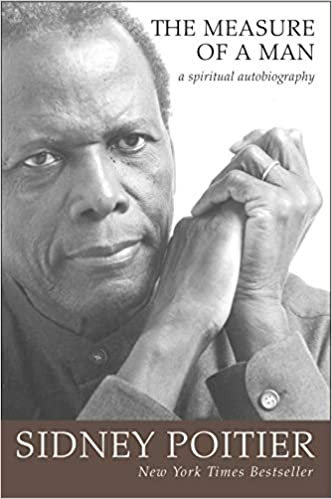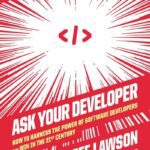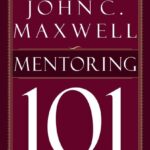The Measure of a Man: A Spiritual Autobiography is a book of reflection by Bahamian-American actor Sidney Pottier wherein he reflects on lessons learned during his seventy-plus years of sojourn in life. Sidney described what he absorbed through his early experiences, lessons learned from his parents and adventures. Sidney Pottier was the first black actor and the first Bahamian to win the Academy Award for Best Actor.
When childhood is aborted, it’s like aborted grief. In both cases, if you don’t go through all the stages, giving each its due, the job never gets completed.
By the age of thirteen I had dropped out of school, a short tenure, given that my formal education began around the age of eleven. At the age for junior-high sock-hops I was doing hard labor around construction jobs.
Father – Reggie
My father, Reggie, was a certain kind of man, and he was a certain kind of dad. He was a poor man, for certain. He was a hard-working man, for sure. The only thing he knew how to do was tomato farming, but the soil in Nassau wasn’t good, and it was a tourist economy, and there was simply no room for him to plant.
My dad was so poor that he was dismissed by the black social structure, dismissed by every social structure. Dismissed by everyone, pretty much, except his friends. He had lots of friends.
The Measure of a Man
When I got to New York, and when I got to Hollywood, for whatever reason or by whatever stroke of luck, I was given the tremendous opportunity of doing work that could reflect who I was. And who I was had everything to do with Reggie and Evelyn and each cigar sold and each rock broken. That’s how I’ve always looked at it: that my work is who I am. I decided way back at the beginning, back when I was still washing dishes in a barbecue joint in Harlem, that the work I did would never bring dishonor to my father’s name.
Of all my father’s teachings, the most enduring was the one about the true measure of a man. That true measure was how well he provided for his children, and it stuck with me as if it were etched in my brain.
Survival Instincts
Survival pressed me into being more of a serious fellow than I would have liked. But not to the complete exclusion of some delight and some joy. Only in the Bahamas, however, was delight taken fully, without reservation.
A survival tactic that worked well for me was one I had gotten from my mother: “Charm them, son,” she said, “into neutral.” Being charming bought me time by allowing me to at least temporarily deflect the jabs of a threatening society.
Society had created laws to keep me at a distance, or out of sight altogether. Learning to survive in that often-hostile world was trial-and-error, step-by-step; and just as when I was learning to pick fruit from the sapodilla trees. I often got stung.
Life Battles
By the time I had reached my early twenties, I had fought many battles, lost many wars, and lived many lives (unprepared for each of them). Life offered no auditions for the many roles I had to play. And nowhere along the roads I traveled can I recall ever hearing the word “outsider” applied to me. I had for years considered myself an old hand at the game of staying alive. But with failure walking in my shadow every minute, waiting for the misstep that could derail my whole existence, “survivor” seemed to me a more appropriate label under which my life should be filed.
“The curious thing about being an outsider is that you never know where your guardian angels are lurking.”
The Outsider
Years later, Arthur Ashe made reference in his book to the many times in his professional life when his response to similar situations wasn’t his natural response, but rather the calculated response required of someone walking on the edge. Johnny Johnson of Ebony magazine and Berry Gordy, Jr., of Motown have spoken of the same experience. Long-term outsiders know that struggling on the edge can be beneficial in ways more far-reaching than the personal reward any individual outsider might reap. Ashe, as a black man in a white sport; became an ambassador for this country. When he went to South Africa with the U.S. Tennis Association, he had to be “accommodated”; he had to be dealt with. Outsiders know that their struggle is being watched. Silently, often dangerously, they bear witness.
Channeling Anger
Anguish and pain and resentment and rage are very human forces. They can be found in the breasts of most human beings at one time or another. On very rare occasions there comes a Gandhi, and occasionally there comes a Martin Luther King, Jr., and occasionally there comes a guy like Paul Robeson or a guy like Nelson Mandela. When these people come along, their anger, their rage, their resentment, their frustration—these feelings ultimately mature by will of their own discipline into a positive energy that can be used to fuel their positive, healthy excursions in life.
“Anger is negative energy—a destructive force—but they converted it into fuel, into positive energy. Their transformed anger fueled them in positive ways; in each case that’s exactly what happened.”
Dealing with people in power
Wherever there’s a configuration in which there are the powerful and the powerless, the powerful, by and large, aren’t going to feel much of anything about this imbalance. After a while the powerful become accustomed to experiencing the power to their benefit in ways that are painless. It’s the air they breathe, the water they swim in.
When you’re addressing power, don’t expect it to crumble willingly. If you’re going to say, “Hey now, look you guys, please look at what you did and look at yourselves and punish yourselves and at least try to square this thing, right?”—well, you’ll make slower progress at that than you would expect. I mean, even the most modest expectations are going to be unfulfilled.
Acting is not a game
Living consciously involves being genuine; it involves listening and responding to others honestly and openly; it involves being in the moment. This is all equally true of effective acting. Acting isn’t a game of “pretend.” It’s an exercise in being real.
The Poverty Syndrome
You can’t have been subject to poverty at one time and ever live free of it again. It hunkers down in your head and latches on to your very being. It can be subdued; it can be varnished over; it can even in some cases be neutralized. But boy, external circumstances can bring it right out of its dormant state again.
All the Best in your quest to get better. Don’t Settle: Live with Passion.



Comments are closed.